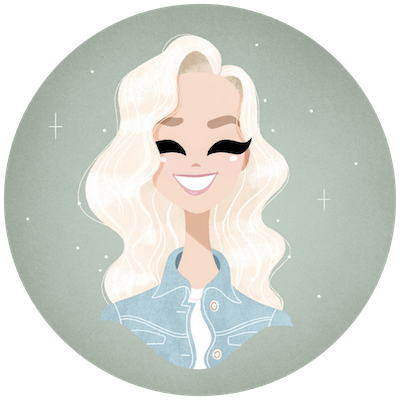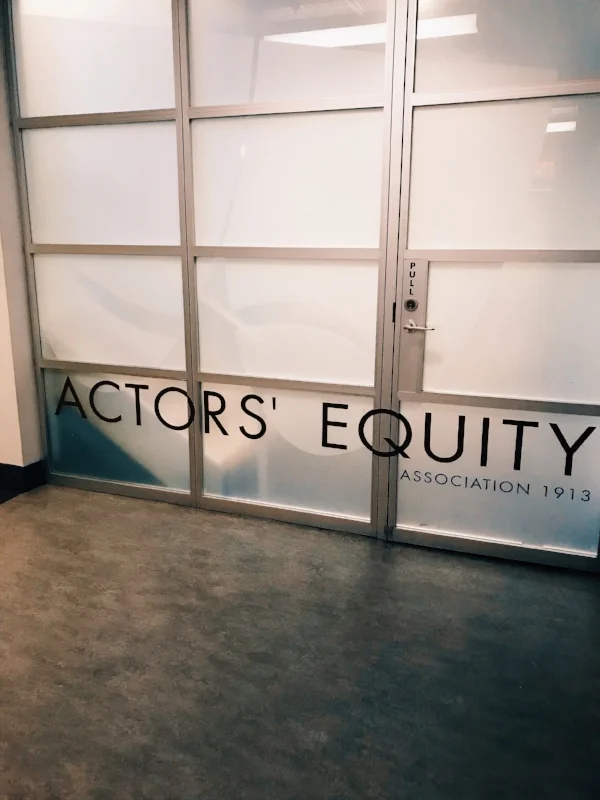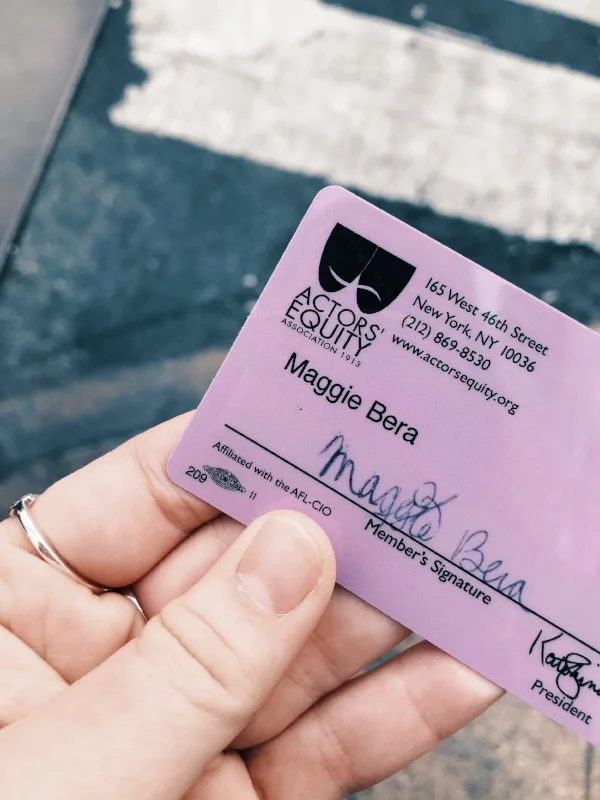5 Surprising Lessons I Learned From Equity Principal Auditions
Actors Equity Association is the union representing 51,000 stage actors and stage managers that provides a wide range of benefits for its members. One of the most important bonuses includes auditions run by the union.
Required of any production with a negotiated Equity contract, Equity Principal Auditions give actors, with or without agents, the opportunity to audition directly in front of creative teams and casting directors.
Equity Principal Auditions are an important part of life for Equity actors around the country.
Once you’ve been to a couple of EPAs, you start to notice a couple of patterns.
The patterns in which Equity Principal Auditions are run
The patterns in which you approach these auditions
The patterns in which other actors approach auditions
I can confidently say I have been to more Equity Principal Auditions than I can count. With the experience of auditioning for over 2 years in NYC, here are the 5 most surprising lessons I’ve learned from EPAs.
Sitting in the holding room of an Equity Principal Audition
1. I learned that I desperately needed to stop making excuses for myself
I hear actors make up excuses every day as to why they didn’t attend an equity principal audition. I hear “They’re not casting,” “Just an assistant is in the audition room,” “I hate monologues or cold reading sides,” “I’m not equity so I’ll never get seen,” etc.
Because I heard those phrases so often, I started believing them myself. I found that it was much easier to wake up in the morning and decide against going to an EPA because I could find better use of my time.
I started thinking… why go to the EPA when they already cast the show? Why should I bother auditioning?
These are lies we tell ourselves…
Maybe we are tired, fearful, self-conscious and we couldn’t bear the thought of going to another audition.
Regardless of how we’re feeling, we definitely cannot read minds.
Why are we getting in our own way? If we have the time and effort… the only thing worse than going to an EPA, is NOT going to an EPA!
There are so many factors in this industry that we can’t control. But we can control our work ethic and our attitude.
Even if the casting gods are not even paying attention to your audition, you are getting a few minutes in the room to practice! You are able to practice your material in front of people… and not just your friends, or your coach, but people who are contractually obliged to be there!
2. I learned that showing up is only half the battle.
Showing up is good, getting in the room is good, getting in front of casting directors and creative teams is good, but I learned I had to be smart about my auditions. I couldn’t just walk into the room and sing the same song over and over again because I was comfortable with it.
I began studying the breakdowns, what the creative team was specifically looking for… whether it was a short pop/rock song, 16 bars of a legit ballad, 32 bars of a comedic contemporary song. I learned to look closely at the character descriptions and to dive further into my research on the specific people who made up the creative teams.
If the show I was auditioning for was new, I’d look directly to the authors. To the composer and lyricist. What else have they written? Is their work online? Can I find their website and figure out their style?
All of my research I was doing outside of the audition would eventually better serve me in the audition room. I began to pick songs that were better suited for the shows and characters I was auditioning for.
3. I learned I didn’t have to go to EVERY EPA.
When you live in a big theatre hub like New York City, you’re bound to experience endless audition seasons. Between EPAs, Equity Chorus Calls, open calls, and appointments, the number of auditions can start to feel overwhelming. FOMO!
Opportunity is great, but so is your sanity.
I found that spreading myself too thin was costing me my creativity in the audition room.
I love being busy, I love being able to go to multiple auditions a day, but when I find that its starting to stifle my acting choices, my voice, my health… I have to stop and reevaluate.
Check out Episode 28 of the Actor Aesthetic Podcast where I talk more on the “Hustle Mindset.”
4. I learned that EPAs for a full season of shows did not have to be as stressful as they sound.
In the heart of the New York City audition, which I would consider January to April, theatres typically hold Equity Principal Auditions for their full season of shows. This is especially true for theatres that have bustling a summer season.
Fun Fact: Most theaters that hold an EPA for their entire season will also hold Equity Chorus Calls for specific shows later on.
5. I learned that having a few monologues up your sleeve will come in handy.
As someone who graduated with a BFA in musical theatre, I thought surely I would never have to do a monologue again.
Wrong.
The fact is, many theatres audition for multiple shows at a time during an EPA. This means that there is a good chance there will also be a few straight plays in the season.
This is where having a monologue comes in handy. Many theatres, when their seasons are a mixture of straight plays and musicals, will either ask for one monologue under two minutes, one song under two minutes, or a 16 bar cut of a song and a short monologue. Why cut yourself short by just performing a song?
Having a monologue will allow you to show another side of you, more of you, with the creative team, that may not be accessible through just a short cut of a song. Use this to your advantage!
The amount of times I was asked for a monologue in the room may surprise you. But you best know I was prepared for it!
Need help finding monologues? Our online coaching team at Actor Aesthetic can help!
Looking to build your audition book with songs that represent YOU? I host one-on-one coaching sessions to give actors the tools to build their rep books, define their brand, and perfect their audition material.
Find this helpful? Be sure to check out the Actor Aesthetic podcast on Apple Podcasts, Google Play Music, Spotify, Stitcher, and more. New episodes every Monday!

















The age old question.